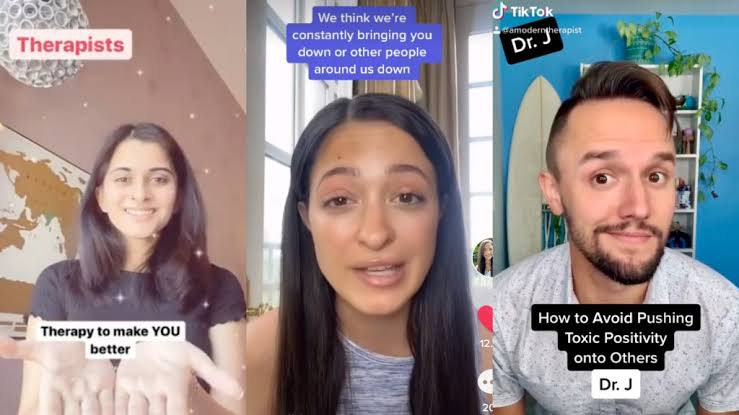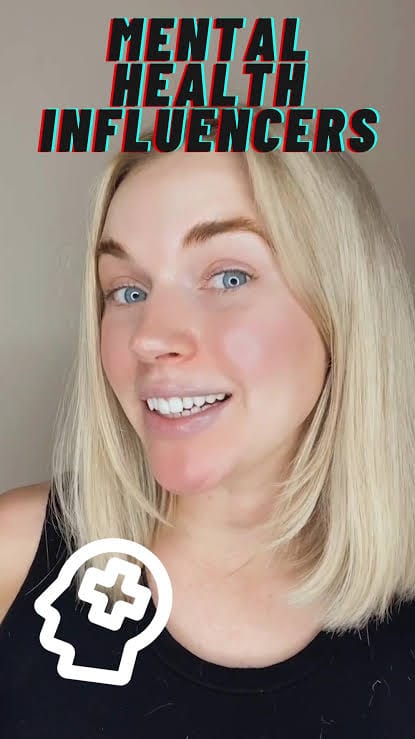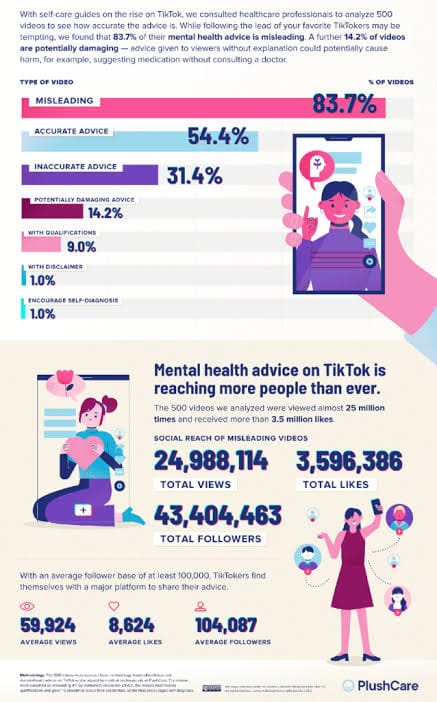The TikTok Therapist Backlash: Are Influencers Exploiting Mental Health?

[NEW YORK] – June 27, 2025
In an age when nearly every corner of life is curated for virality, therapy has found its way onto our For You pages. From bite-sized emotional insights to full-blown trauma breakdowns, TikTok has given rise to a new breed of content creators: the TikTok therapists. But as their follower counts rise, so does the scrutiny.
Are these influencers democratizing access to mental health—or dangerously oversimplifying serious issues for clicks?
The Rise of #TherapyTok
Over the past two years, hashtags like #TherapyTok, #MentalHealthMatters, and #TraumaHealing have exploded, racking up over 4.2 billion views collectively. Creators like @MindfulMaya and @DrTonyTalks offer quick self-diagnosis quizzes, childhood trauma checklists, and 15-second validation reels.
While many viewers find comfort and solidarity in these clips, psychologists warn that the brevity and format can foster misinformation or even self-diagnosis spirals.
“Social media can amplify awareness, but it can also distort it,” says Dr. Lina Patel, clinical psychologist and professor at NYU. “Mental health is not a one-size-fits-all narrative.”

Monetizing Mental Illness?
Critics argue that some therapists are crossing ethical lines. TikTok creators who claim professional credentials often offer paid sessions via links in bios or promote expensive e-courses. Others even sell affiliate products tied to emotional healing, such as calming candles or guided journals.
One viral TikTok sparked outrage when a creator said, "If you have anxious attachment, this candle will reset your nervous system," while linking to a $45 product.
Moreover, some influencers share emotionally charged, first-person trauma stories with dramatic music and edits, leading to accusations of "trauma porn" and emotional manipulation.
"This isn’t therapy. It’s entertainment," reads one top comment on a now-deleted video from @TalkWithTina, who was recently outed for not being licensed.
Platform Accountability & Regulation
TikTok’s community guidelines prohibit health misinformation, but enforcement is patchy. Unlike medical advice—which is frequently flagged—emotional advice in mental health spaces tends to escape scrutiny.
Organizations like the American Psychological Association (APA) have released public statements cautioning against relying on unvetted TikTok content as a replacement for licensed care.
Meanwhile, TikTok has yet to announce any new content moderation tools specific to mental health content.
Community Divide: Support vs. Skepticism
While some users report that these creators helped them finally seek therapy, others say it made them spiral. The duality reflects a larger cultural tension: we crave validation, but also accuracy.
Comments under popular videos often mirror this split:
- "Thank you, this video saved me."
- "This is wildly irresponsible and misleading."
Influencer-therapists like @TheHolisticHealer have responded to backlash by publishing disclaimers, stating, "This is not a substitute for professional care," at the start of every post.
What Happens Next?
As platforms like TikTok evolve, the line between advocacy and opportunism will only blur further. Experts urge viewers to treat content as inspiration—not diagnosis.
Industry watchdogs are pushing for verified therapist badges, transparency in monetized mental health content, and digital literacy campaigns aimed at younger audiences.
For now, creators walk a tightrope—balancing authenticity, ethics, and algorithm.

Final Thoughts: Therapy or Theater?
Social media can be a powerful force for change, but when it comes to mental health, nuance is non-negotiable.
Are TikTok therapists helping us heal—or are we watching a performance dressed in empathy? Let us know in the comments.
Sources: Google Trends, American Psychological Association, Archive.org, verified psychologist interviews



